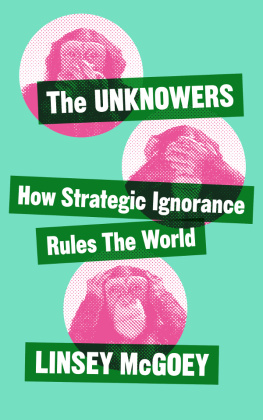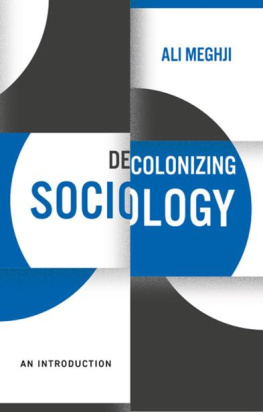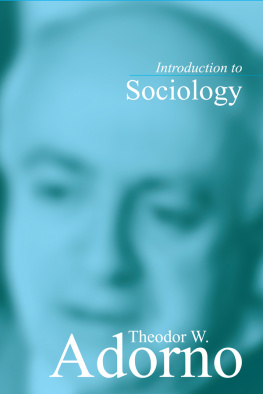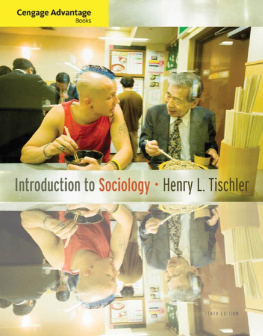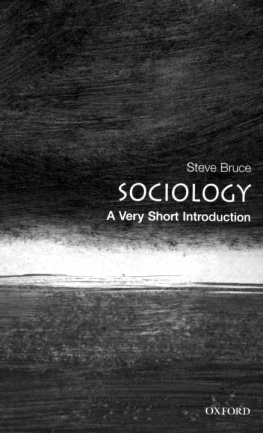
An Introduction to the Sociology of Ignorance
Ignorance is typically thought of as the absence or opposite of knowledge. In global societies that equate knowledge with power, ignorance is seen as a liability that can and should be overcome through increased education and access to information. In recent years, scholars from the social sciences, natural sciences and humanities have challenged this assumption, and have explored the ways in which ignorance can serve as a vital resource perhaps the most vital resource in social and political life.
In this seminal volume, leading theorists of ignorance from anthropology, sociology and legal studies explore the productive role of ignorance in maintaining and destabilizing political regimes, entrenching corporate power, and shaping policy developments in climate science, global health, and global economic governance. From debates over death tolls during the war in Iraq, to the root causes of the global financial crisis, to poverty reduction strategies at the World Bank, contributors shed light on the unexpected ways that ignorance is actively harnessed by both the powerful and the marginalized in order to achieve different objectives. This eye-opening volume suggests that to understand power today, we must enrich our understanding of ignorance.
This book was originally published as a special issue of Economy and Society.
Linsey McGoey is Lecturer in Sociology at the University of Essex, UK, and a Co-Director of the Centre for Economic Sociology and Innovation (CRESI). Her publications appear in the British Journal of Sociology, BioSocieties, Third-World Quarterly, History of the Human Sciences and Science of Culture. From November 2013, she joins the Editorial Advisory Board of Economy and Society.
An Introduction to the Sociology of Ignorance
Essays on the Limits of Knowing
Edited by
Linsey McGoey
First published 2014
by Routledge
2 Park Square, Milton Park, Abingdon, Oxon, OX14 4RN, UK
and by Routledge
711 Third Avenue, New York, NY 10017, USA
Routledge is an imprint of the Taylor & Francis Group, an informa business
2014 Taylor & Francis
All rights reserved. No part of this book may be reprinted or reproduced or utilised in any form or by any electronic, mechanical, or other means, now known or hereafter invented, including photocopying and recording, or in any information storage or retrieval system, without permission in writing from the publishers.
Trademark notice: Product or corporate names may be trademarks or registered trademarks, and are used only for identification and explanation without intent to infringe.
British Library Cataloguing in Publication Data
A catalogue record for this book is available from the British Library
ISBN 13: 978-1-138-77967-9
Typeset in Sabon
by Taylor & Francis Books
Publishers Note
The publisher accepts responsibility for any inconsistencies that may have arisen during the conversion of this book from journal articles to book chapters, namely the possible inclusion of journal terminology.
Disclaimer
Every effort has been made to contact copyright holders for their permission to reprint material in this book. The publishers would be grateful to hear from any copyright holder who is not here acknowledged and will undertake to rectify any errors or omissions in future editions of this book.
Contents
Linsey McGoey
Carol A. Heimer
Brian Rappert
William Davies and Linsey McGoey
Jacqueline Best
Steve Rayner
The chapters in this book were originally published in Economy and Society, volume 41, issue 1 (February 2012). When citing this material, please use the original page numbering for each article, as follows:
Chapter 1
Strategic unknowns: towards a sociology of ignorance
Linsey McGoey
Economy and Society, volume 41, issue 1 (February 2012) pp. 116
Chapter 2
Inert facts and the illusion of knowledge: strategic uses of ignorance in HIV clinics
Carol A. Heimer
Economy and Society, volume 41, issue 1 (February 2012) pp. 1741
Chapter 3
States of ignorance: the unmaking and remaking of death tolls
Brian Rappert
Economy and Society, volume 41, issue 1 (February 2012) pp. 4263
Chapter 4
Rationalities of ignorance: on financial crisis and the ambivalence of neo-liberal epistemology
William Davies and Linsey McGoey
Economy and Society, volume 41, issue 1 (February 2012) pp. 6483
Chapter 5
Bureaucratic ambiguity
Jacqueline Best
Economy and Society, volume 41, issue 1 (February 2012) pp. 84106
Chapter 6
Uncomfortable knowledge: the social construction of ignorance in science and environmental policy discourses
Steve Rayner
Economy and Society, volume 41, issue 1 (February 2012) pp. 107125
Please direct any queries you may have about the citations to clsuk.permissions@cengage.com
Jacqueline Best is Associate Professor in the School of Political Studies at the University of Ottawa, Canada. Her work focuses on the social, cultural and political underpinnings of the global economic system. Her two most recent books are Governing Failure: Provisional Expertise and the Transformation of Global Development Finance (Cambridge, 2014) and The Return of the Public in Global Governance (Cambridge 2014), co-edited with Alexandra Gheciu.
William Davies is a Senior Lecturer at Goldsmiths, University of London. His research examines the history and application of neoliberal thought. He is the author of The Limits of Neoliberalism: Authority, Sovereignty and the Logic of Competition (Sage, 2014).
Carol A. Heimer received her PhD in Sociology from the University of Chicago, USA. She is currently Professor of Sociology at Northwestern University, USA, and Research Professor at the American Bar Foundation. She is the author of Reactive risk and rational action (1985), For the sake of the children (with Lisa R. Staffen, 1998) and articles on law, morality, medicine, organization theory, and risk. Her current research is on the relationship between law and medicine in HIV clinics.
Linsey McGoey is Lecturer in Sociology at the University of Essex, UK, and a Co-Director of the Centre for Economic Sociology and Innovation (CRESI). Her publications appear in the British Journal of Sociology, BioSocieties, Third-World Quarterly, History of the Human Sciences and Science of Culture. From November 2013, she joins the Editorial Advisory Board of Economy and Society.
Brian Rappert is Professor of Science, Technology, and Public Affairs in the Department of Sociology & Philosophy at the University of Exeter, UK. His recent books include How to Look Good in a War, Experimental Secrets, Controlling the Weapons of War, and Biotechnology, Security and the Search for Limits.
Steve Rayner is James Martin Professor of Science and Civilization and Director of the Institute for Science, Innovation and Society at Oxford University, UK, from where he also directs the Oxford Programme for the Future of Cities and co-directs the Oxford Geoengineering Programme. He is also Honorary Professor of Climate Change and Society at the University of Copenhagen, Denmark, and Senior Fellow at the Breakthrough Institute, an environmental NGO based in Californias Bay Area. He has served on various US, UK and international bodies addressing science, technology and the environment, including Britains Royal Commission on Environmental Pollution, the Intergovernmental Panel on Climate Change and the Royal Societys Working Group on Climate Geoengineering.




